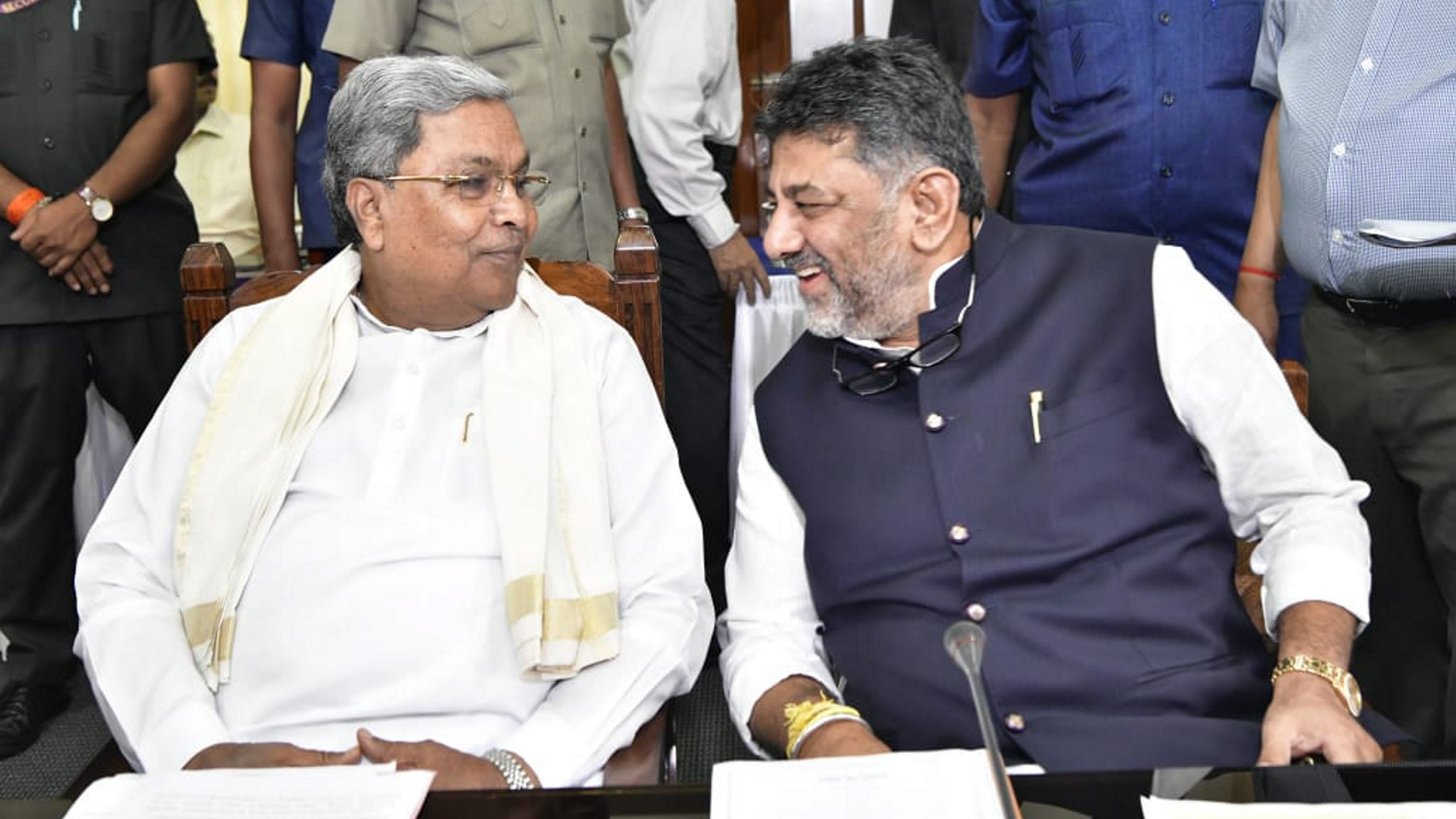
Karnataka Chief Minister Siddaramaiah and Deputy Chief Minister DK Shivakumar.
Credit: PTI Photo
Bengaluru: India’s largest 40-km underground tunnel is among investments lined up for Bengaluru, according to a Rs 1.31 lakh crore infrastructure roadmap the Siddaramaiah administration unveiled Wednesday in a bid to tell critics that it has plans beyond welfare largesse.
“Bengaluru’s infrastructure landscape is set for a transformation with projects worth ₹1,31,500 crore,” Chief Minister Siddaramaiah’s office said in a statement.
“These investments are designed to improve the quality of life and attract further private sector participation, foster innovation, and position Bangalore as a global hub for business and technology,” the CMO said.
The 40-km underground urban tunnel will be a public-private partnership (PPP) project. The Bengaluru municipal corporation will borrow Rs 14,000 crore and raise Rs 5,000 crore through transferable development rights (TDR). The remaining Rs 21,000 crore will be through a private concessionaire who will recover the money from tolls and other forms of asset monetisation, according to details shared with DH.
The government is also planning 100-km elevated corridors (Rs 12,000 crore), double-decker metro lines (Rs 9,000 crore), 80 km of metro network under Phases 3 and 3A (Rs 40,000 crore), additional road network in lake and stormwater drain buffer areas (Rs 3,000 crore), sky deck (Rs 500 crore) and the Bengaluru Business Corridor (Rs 27,000 crore).
These projects will be funded through budgets, loans, private investments and asset monetisation.
The government is also planning investments worth ₹16,750 crore through funding agencies such as World Bank and Asian Development Bank, the CMO said. These include school infrastructure development (Rs 2,800 crore), rural roads (Rs 3,600 crore) and urban water supply modernisation (Rs 1,200 crore).
This fiscal, the government has spent 46 per cent of its budget estimates by October, the CMO said. “Capital expenditure has risen to 29 per cent...up from 24.7 per cent last year, demonstrating the government’s commitment to infrastructure development,” it said.
“The government has silenced critics questioning its ability to fund welfare guarantees, having already provided ₹24,235 crore out of a budgeted ₹52,009 crore through Direct Benefit Transfer,” the CMO pointed out.
The government said Karnataka has achieved “outstanding fiscal performance” in the first seven months of 2024-25, generating ₹1.03 lakh crore in revenues, which is 53 per cent of its annual target of ₹1.96 lakh crore.
“With a year-on-year growth rate of 11.2 per cent, this achievement reflects the state’s robust economic fundamentals driven by strong economic growth, increased consumer demand, better governance, and the government’s focus on creating a business-friendly environment,” the CMO said, adding that Karnataka surpassed Gujarat to occupy the second place in FDI inflows during the first quarter of the fiscal “reflecting growing investor confidence in its progressive economic policies”.
In the current fiscal, the CMO said Karnataka aims to sustain the economic growth rate at 14 per cent by maintaining capital expenditure above 2 pre cent of GSDP.
Karnataka is evolving its own growth model, Siddaramaiah said, adding that the state is "positioning itself as a leader in fiscal management and inclusive economic development."
